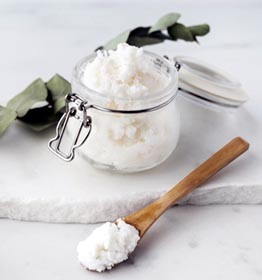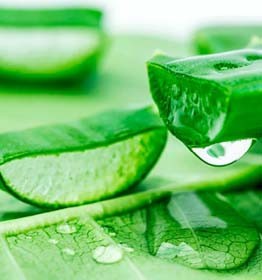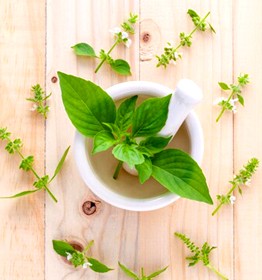Blog categories
What does Tulsi (Basil) do to our Skin?
The ancient Indian healing tradition of Ayurveda relies on time-tested wisdom for nurturing skin and hair. An integral aspect of Ayurvedic beauty practices involves harnessing the power of proven herbs to enhance skin health. One such herbal remedy is Tulsi, also known as Holy Basil.
What is Tulsi (Basil)?
Tulsi, a fragrant perennial plant native to the Indian subcontinent, has been utilized within Ayurveda for its therapeutic properties for thousands of years. Revered as "Holy Basil," it is believed to possess 'sattvic' energy, promoting harmony, light, wisdom, and compassion.
What are the properties of Tulsi (Basil)?
In Ayurveda, Tulsi is characterized by its warming and clarifying qualities, supporting lung health, the flow of life force (prana), and circulation. Additionally, it acts as an adaptogen, aiding in stress prevention and recovery, weight regulation, mental clarity, and preventing exhaustion and burnout. Tulsi is believed to balance excess Kapha (water/earth) and Vata (air) dosha, the elemental building blocks of Ayurveda.
Research on Tulsi.
While scientific research on Tulsi is somewhat limited, some studies suggest potential benefits for the skin and hair, including its antibacterial properties that may help combat acne. A 2014 literature review noted experimental evidence supporting Tulsi's potential in treating bacterial infections, including acne. Further research is required for conclusive evidence.
Tulsi's application in promoting healthy skin aging is supported by a 2019 study, demonstrating its potent antioxidant activity when applied topically. Antioxidants are important in reducing free radicals and addressing oxidative stress that contributes to fine lines and wrinkles.
Benefits of Tulsi for Skin and Hair.
Reduce Pigmentation: The antioxidant properties of Tulsi also make it a candidate for addressing pigmentation issues by reducing free radical production and combating environmental stressors like UV rays and pollution.
Anti-inflammatory properties provide relief from Eczema: Though no significant scientific studies have confirmed its efficacy, Tulsi's anti-inflammatory properties may offer relief for dry skin conditions such as eczema by reducing irritation, redness, and swelling.
Tulsi for hair loss: In Ayurveda, Tulsi has been traditionally used to prevent hair loss or thinning, with potential benefits attributed to its anti-inflammatory components. However, more high-quality studies are needed to validate these claims.
Tulsi for Dandruff: Tulsi's antifungal properties suggest potential effectiveness in addressing dandruff, though rigorous scientific research is yet to confirm this.
How to use Tulsi.
Various applications for Tulsi in skincare include facial steams, face masks, hair masks, cleansers, spot treatments, teas, and supplements. Incorporating Tulsi into skincare products or consuming it orally through tea or supplements may support overall skin and hair health.
It is advisable to perform a patch test before using Tulsi products on the skin or near the scalp. Consultation with a healthcare professional who is well-versed in herbal medicine is recommended before incorporating Tulsi into your regimen.
Leave a comment
Log in to post comments










